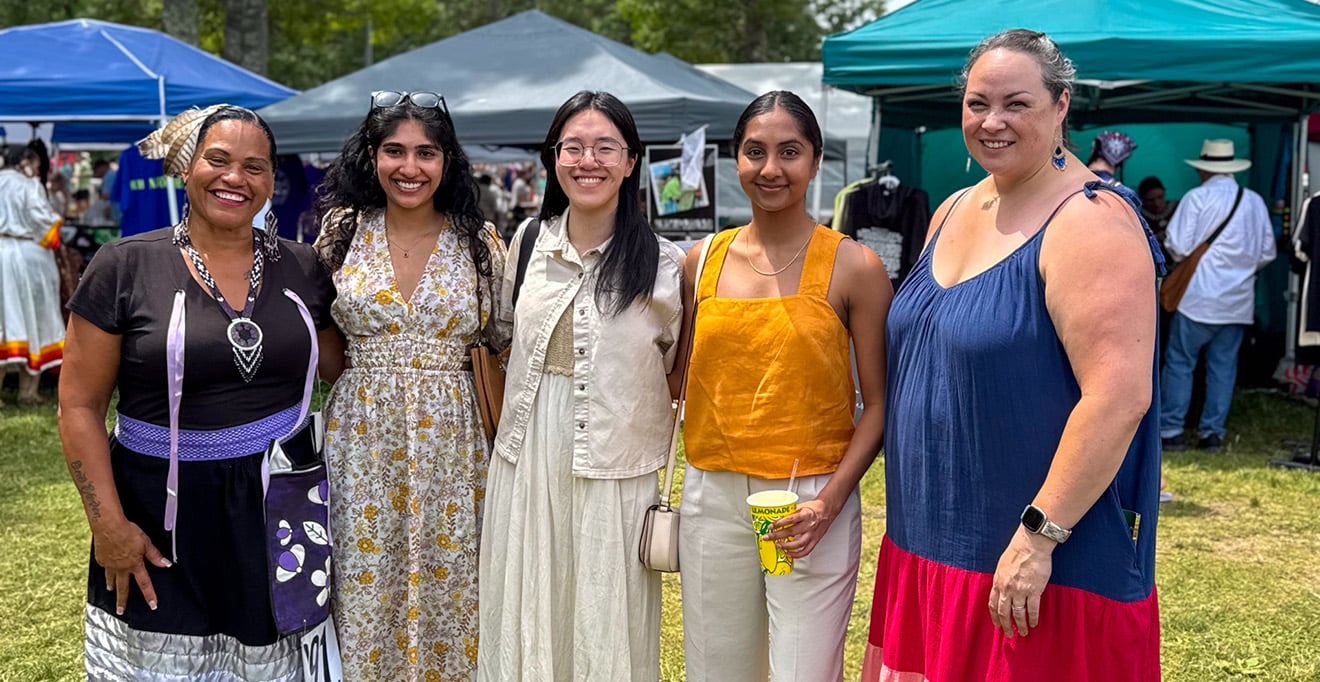
‘Big responsibility and great joy’—UMass Chan Indigenous health clerkship launches
How did your country report this? Share your view in the comments.
Diverging Reports Breakdown
‘Big responsibility and great joy’—UMass Chan Indigenous health clerkship launches
Four T.H. Chan School of Medicine students are learning Indigenous history, taking part in cultural events and forming connections with the Indigenous community. Medical students are required to complete a longitudinal clerkship that runs three nonconsecutive weeks during their third year. Jeanna Lee, PhD, assistant professor of family medicine & community health, and assistant director for equity, inclusion and campus climate, partnered with Cheryl Cromwell, tribal health strategist for the Department of Public Health. Lee also leads UMass Chan’s Indigenous Health Advisory Group and is planning to incorporate student involvement at the Hassanamisco Nipmuc Health Fair in September and future powwows. The CDC reports that cancer and heart disease are the leading causes of death for Indigenous people.
Photo: Cheryl Cromwell
Four T.H. Chan School of Medicine students are learning Indigenous history, taking part in cultural events and forming connections with the Indigenous community as members of the first cohort of UMass Chan Medical School’s Indigenous health clerkship.
The medical students are required to complete a longitudinal clerkship that runs three nonconsecutive weeks during their third year. Jeanna Lee, PhD, assistant professor of family medicine & community health, psychiatry, and assistant director for equity, inclusion and campus climate, partnered with Cheryl Cromwell, tribal health strategist for the Department of Public Health and member of the Mashpee Wampanoag Tribe, to establish the new clerkship program.
“I’m learning so much about the Indigenous peoples of New England through doing this,” said Dr. Lee, who is Lakota and an enrolled member of the Cheyenne River Sioux Tribe. “My tribe, for better or worse, is the tribe people often think of when they picture Indigenous culture in the United States. We wore feathers in our hair, had high cheekbones, were very tall, had long braids and lived in teepees. Every tribe has a different way of life and there’s no singular tribe that represents Indigenous Americans.”
Lee aims to pinpoint advocacy opportunities and orient students to Indigenous history, exploring how broken treaties, government distrust, forced sterilization and murder impacted and continues to impact social determinants of health and health inequity in the Indigenous community.
“We don’t expect students to have a good historical perspective because Indigenous peoples tend to be invisible and we’re often mistaken for other ethnicities or not even recognized,” Lee said. “People think there aren’t many of us left, but there are millions of Indigenous people in the United States.”
The cohort attended the Mashpee Wampanoag powwow in July. Cromwell formally introduced them in the circle, a sacred space where dancing occurs.
“Indigenous peoples have been important to the history of the United States and around the world, but they often aren’t included in research statistics or even conversations about American people,” said third-year medical student Melanie Fu. “I am not indigenous, but I wanted to learn about indigenous health and this community and engage and connect with people.”
“This clerkship is meaningful. It’s powerful, professionally and personally, to see how passionate our students are,” said Lee. “They learned about the history and said, ‘that’s wrong and we need to do better. I can do better as a clinician and as a human being.’ I feel a big responsibility, but I feel great joy in doing this work.”
While many clerkships have a clinical component, this first iteration will focus on forming connections with the Mashpee Indigenous Health Clinic, enabling future students to interact with patients. Lee also leads UMass Chan’s Indigenous Health Advisory Group and is planning to incorporate student involvement at the Hassanamisco Nipmuc Health Fair in September and future powwows, facilitating blood pressure monitoring, glucose draws and education around managing high blood pressure or diabetes. The CDC reports that cancer and heart disease are the leading causes of death for Indigenous people.
